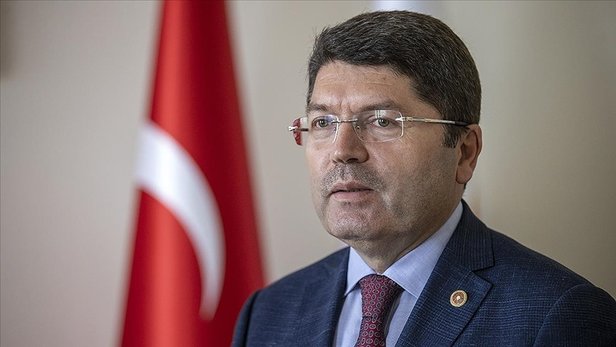Turkish Justice Minister Yılmaz Tunç has announced that removal of the right to apply to the Constitutional Court individually is not on the table for the government, the Stockholm Center for Freedom reported, citing the Evrensel newspaper.
“We were the ones who instated the right to individual application. There can be no question of backpedaling from it,” Tunç said, speaking to reporters ahead of a parliamentary meeting of the ruling Justice and Development Party (AKP). “The main goal is a new constitution. If that turns out to be impossible, we might consider a partial amendment aimed at doing away with the uncertainty.”
By “the uncertainty,” Tunç presumably referred to a recent controversy surrounding the country’s high judiciary that erupted after the Supreme Court of Appeals openly decided not to comply with a Constitutional Court order to release jailed opposition deputy Can Atalay.
In addition to defying the country’s highest court, the top appeals court had also filed a complaint against judges who voted in Atalay’s favor.
Earlier this week, Devlet Bahçeli, leader of the Nationalist Movement Party (MHP) and President Recep Tayyip Erdoğan’s far-right ally, called for either the closure or the restructuring of the Constitutional Court.
Last week Erdoğan had sided with the Supreme Court of Appeals while targeting the judges of the Constitutional Court for making mistakes.
Atalay, who is at the center of the crisis, was elected to parliament from the Workers Party of Turkey (TİP) in May while serving a sentence for his alleged role in the anti-government Gezi Park protests of 2013. Jailed businessman Osman Kavala was the most prominent defendant in the same trial and was given a life sentence.
Turkey’s laws stipulate that the rulings of the Constitutional Court are binding on all other courts and state bodies. Yet, in recent years, lower courts in the country have failed to comply with the top court’s judgments, particularly in cases with potential political implications.
In addition Turkey’s authorities have been disregarding European Court of Human Rights rulings for the release of prominent political prisoners, such as Kavala and Kurdish politician Selahattin Demirtaş, even though Turkey accepts the Strasbourg court’s jurisdiction over its judiciary.
The Turkish judiciary faces widespread criticism for its perceived lack of independence. Critics accuse Erdoğan of exerting control over the judiciary and establishing one-man rule in the country, particularly after a coup attempt in 2016, following which he launched a massive crackdown on non-loyalist citizens and the country’s subsequent transition to a presidential system of governance, which granted him vast powers.
Many say there is no longer a separation of powers in the country and that members of the judiciary are under the absolute control of the government and cannot make judgments based on law.
In a development that validated the critics, Turkey was ranked 117th among 142 countries in the rule of law index published by the World Justice Project (WJP) in October, dropping one rank in comparison to last year.

